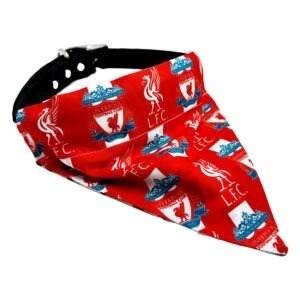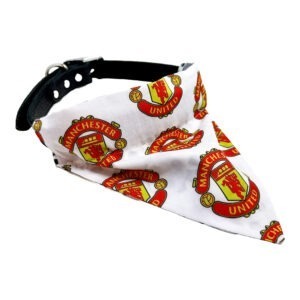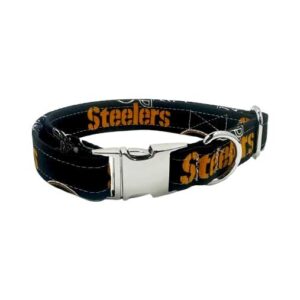The Cane Corso, also known as the Italian Mastiff, is a robust, majestic breed with a storied history dating back to ancient Rome. Originally bred for hunting and guarding, the Cane Corso today is revered for its protective instincts, unyielding loyalty, and deep devotion to its family. As large and muscular dogs, they require a balanced diet and regular exercise to maintain their physical prowess and overall health.
However, being an owner of a Cane Corso goes beyond simply providing food and walking them daily. This breed’s unique characteristics and needs make the diet and exercise elements of their care all the more essential. A well-balanced lifestyle not only contributes to their physical well-being but also helps maintain their mental health, crucial for a breed known for its intelligence and mental resilience.
Throughout this guide, we will delve into the intricacies of maintaining a Cane Corso’s diet and exercise regimen, revealing the specifics that every Cane Corso owner needs to know to ensure their pet’s happiness and long-term health. We aim to provide a comprehensive understanding of the breed’s needs, so you can offer your Cane Corso the care they deserve.
Some of our latest products...
-
犬用バンダナ
Liverpool FC Dog Bandana
$ 13.19 – $ 16.12 米ドル オプションを選択 この商品には複数のバリエーションがあります。 オプションは商品ページから選択できます -
犬用バンダナ
Manchester City Dog Bandana
$ 13.19 – $ 16.12 米ドル オプションを選択 この商品には複数のバリエーションがあります。 オプションは商品ページから選択できます -
犬用バンダナ
Manchester United Dog Bandana
$ 13.19 – $ 16.12 米ドル オプションを選択 この商品には複数のバリエーションがあります。 オプションは商品ページから選択できます -
Understanding the Cane Corso
Cane Corsos are a breed known for their formidable size, muscularity, and strength. However, behind their imposing exterior lies a calm, loyal, and intelligent canine. While they are protective by nature and make excellent guard dogs, they are also incredibly affectionate towards their families. Their natural intelligence, coupled with a strong desire to please their owners, makes them highly trainable.
Temperamentally, Cane Corsos are known to be reserved and somewhat suspicious of strangers. However, they are not naturally aggressive unless provoked or if their family is threatened. Early socialization is key to raising a well-adjusted Cane Corso, ensuring they become accustomed to a variety of people, environments, and other animals.
Understanding the typical behaviors and characteristics of a Cane Corso is crucial for determining appropriate diet and exercise routines. They are an active breed, requiring both physical and mental stimulation. Therefore, their diet must support their energy levels, cognitive function, and muscle development.
As a giant breed, Cane Corsos have a relatively shorter lifespan compared to smaller dogs, averaging between 9-12 years. Health problems such as hip dysplasia, heart conditions, and gastric torsion (bloating) are prevalent among this breed, making a well-balanced diet and regular exercise even more crucial.
Overall, a Cane Corso is a well-rounded, robust, and noble breed. Owners should be prepared to meet their unique nutritional needs and provide an adequate amount of physical and mental stimulation. This will ensure their Cane Corso lives a full, healthy, and satisfying life.
The Importance of Diet and Exercise
The role of diet and exercise in a Cane Corso’s life cannot be overstated. These two elements have a profound impact on their overall health, behavior, and longevity.
Diet is the foundation of a Cane Corso’s health. Their large size and muscular build require a well-balanced diet rich in high-quality proteins to support muscle development and maintenance. Vitamins, minerals, and certain fats are also essential for skin and coat health, cognitive function, and immune support. Given their predisposition to certain health problems, a properly balanced diet can be a preventative measure against conditions such as hip dysplasia, heart conditions, and obesity.
Exercise, on the other hand, goes hand-in-hand with diet in maintaining a Cane Corso’s optimal weight. Obesity is a significant concern in large dogs, leading to strain on the joints and escalating the risk of diseases like diabetes and arthritis. Regular exercise also contributes to better cardiovascular health, improved digestion, and a more robust immune system.
Beyond the physical benefits, diet and exercise significantly influence a Cane Corso’s behavior and mental well-being. A high-quality diet supports brain health, leading to better trainability and a more balanced temperament. Exercise offers an outlet for their energy, reducing the risk of destructive behavior and promoting a calmer disposition at home.
Importantly, a consistent exercise routine offers opportunities for socialization and bonding with their family. This strengthens the dog-owner relationship and contributes to the Cane Corso’s overall happiness and satisfaction.
In essence, a balanced diet and appropriate exercise regimen are not just optional for a Cane Corso—they are a necessity. They are the keys to unlock a healthy, fulfilling, and enjoyable life for these magnificent canines.
Dietary Needs of a Cane Corso
Cane Corsos are large, muscular dogs that require a balanced diet to maintain optimal health. Their diet should primarily consist of high-quality proteins, alongside the necessary carbohydrates, fats, vitamins, and minerals.
At different life stages, a Cane Corso’s dietary needs will vary. Puppies, with their rapid growth and development, require a diet rich in protein and higher in calories compared to adults. Ensure the food is specially formulated for large breed puppies to prevent excessive weight gain and support their large skeletal structure.
Adult Cane Corsos should transition to an adult-specific formula around 15 months of age. Their diet should still contain high-quality proteins but with a controlled calorie count to maintain a healthy weight. Fats, particularly omega-3 and omega-6 fatty acids, should be present to maintain skin and coat health, while a balance of vitamins and minerals supports overall health and immune function.
Senior Cane Corsos, usually those over seven years, may need a diet lower in calories but rich in antioxidants, omega fatty acids, and high-quality proteins. This supports muscle maintenance, skin and coat health, and provides immune support for their aging bodies.
When selecting dog food, the first ingredient should ideally be a specific type of meat, like chicken, beef, or fish. Avoid foods with fillers, artificial preservatives, colorants, and vague descriptions like ‘animal by-product.’ Remember that the cheapest option is often not the best one.
Avoid overfeeding or underfeeding your Cane Corso. Overfeeding can lead to obesity, causing multiple health issues, while underfeeding may result in malnutrition and an unhealthy, underweight dog. Consult your vet to establish a suitable feeding schedule and portion sizes.
The impact of a proper diet on a Cane Corso’s behavior and health is significant. A nutrient-rich diet supports cognitive function, resulting in better trainability, while also contributing to a balanced temperament. It also plays a preventative role against many breed-specific health issues.
A few reliable dog food brands for Cane Corsos include “Royal Canin,” “Hill’s Science Diet,” and “Blue Buffalo,” renowned for their breed-specific formulas. However, always consult your vet before making significant changes to your dog’s diet.
Exercise Needs of a Cane Corso
With their deep roots in working and protection roles, Cane Corsos are an active and energetic breed that thrives on regular exercise. This breed requires both physical and mental stimulation to keep them in the best health and ensure balanced behavior.
On average, adult Cane Corsos should have at least an hour of exercise each day. This could be split into two daily walks or runs, coupled with play sessions and training exercises. For puppies, bear in mind their joints and bones are still developing, so their exercise should be less intense and for shorter durations.
Cane Corsos, with their muscular build, enjoy activities that engage their strength. Hiking, fetch games, swimming, or agility training can be great options for this breed. Mental exercise is equally crucial; interactive toys, obedience training, and tasks that require problem-solving will help keep your Cane Corso’s mind sharp.
Exercise has a significant impact on a Cane Corso’s behavior and overall health. Regular activity helps burn off excess energy, preventing destructive behavior often associated with boredom. It also promotes cardiovascular health, aids digestion, reduces obesity risk, and can help manage some behavioral issues such as excessive barking or chewing.
When it comes to exercise gear, opt for durable toys and equipment that can withstand the breed’s strength. For walking or running, a sturdy leash and a comfortable, yet robust harness would be ideal to give you control without causing discomfort to the dog. Kong toys, puzzle feeders, and agility sets can all be excellent investments for a Cane Corso’s physical and mental stimulation.
Always keep safety in mind during exercise sessions. Provide ample water to prevent dehydration, especially during hotter days, and avoid overly strenuous activities to protect the dog’s joints. As Cane Corsos are prone to hip dysplasia, limit exercises that place excessive stress on the hips, especially in puppies.
As your Cane Corso ages, adjust its exercise routines to accommodate its changing physical abilities. Older dogs may not be as agile or energetic, but they still benefit from regular, gentler exercises. Always consult with your vet regarding the suitable type and amount of exercise for your dog at each life stage.
Remember, every dog is unique. Monitor your Cane Corso’s reaction to different activities and adapt to its personal likes and capabilities to create an enjoyable exercise routine that caters to its needs.
Health Risks and Prevention
As a purebred dog, the Cane Corso, like other breeds, has a predisposition to certain genetic health conditions. Among these, hip dysplasia, gastric torsion (also known as bloat), and certain eye conditions such as entropion or cherry eye are the most prevalent.
Hip dysplasia, a malformation of the hip joint that can lead to arthritis, is a common concern in large breeds like the Cane Corso. Regular, controlled exercise from a young age can help to build muscle support around the joint, and a diet rich in joint-friendly nutrients such as Omega-3 fatty acids, glucosamine, and chondroitin can assist in joint health. However, excessive exercise or high-impact activities should be avoided, particularly in growing puppies, to prevent putting too much stress on the joints.
Gastric torsion, a rapid onset and potentially fatal condition, often affects deep-chested breeds. It happens when the stomach fills with gas and possibly rotates, causing severe discomfort and requiring immediate veterinary intervention. To help prevent bloat, divide the Cane Corso’s daily food intake into several small meals instead of one large one and avoid rigorous exercise immediately after feeding.
Eye conditions like entropion, where the eyelid rolls inward, can cause discomfort and vision issues. A healthy diet rich in antioxidants and regular eye checks can help maintain eye health.
Furthermore, maintaining a healthy weight in your Cane Corso is crucial. Obesity can exacerbate many of these health issues, particularly hip dysplasia, and shorten your dog’s lifespan. Regular exercise and portion control are key to weight management.
Regular vet check-ups are crucial in early detection and management of these health issues. A well-informed vet can provide personalized advice based on your dog’s age, weight, and overall health status.
Remember, while it is important to be aware of these common health issues, each dog is unique. Not every Cane Corso will suffer from these conditions. A balanced diet, regular exercise, and routine veterinary care are key to fostering a long, healthy life for your dog. In addition, if your dog is showing signs of discomfort, pain, or abnormal behavior, always consult with your vet promptly.
In the end, the key to managing health risks is a proactive, preventative approach. By keeping a keen eye on your dog’s health, feeding them a balanced diet, and ensuring they get plenty of appropriate exercise, you can significantly reduce the likelihood of these health concerns affecting your Cane Corso.
結論
In conclusion, the Cane Corso is a distinctive breed, known for its power, intelligence, and loyalty. However, these attributes, while certainly commendable, come with an added responsibility for owners. Ensuring the health and happiness of a Cane Corso requires a considerable amount of effort, particularly in terms of providing a suitable diet and ample exercise.
As we have discussed throughout this article, a Cane Corso’s dietary needs are specific and can change throughout their life stages. It’s crucial to ensure that they’re receiving balanced nutrition, with the right amount of protein, fats, carbohydrates, and essential vitamins and minerals. The food they eat plays a vital role in their overall health, impacting everything from their energy level to the condition of their skin and coat. Avoiding overfeeding or underfeeding is essential to prevent weight-related health issues and to keep your pet at their healthiest.
When it comes to exercise, the Cane Corso requires more than just a quick stroll around the block. Regular exercise, suited to their energy level and age, will not only keep them physically fit but will also cater to their mental stimulation needs. Exercise routines should be varied to keep them engaged and should be adjusted as your dog ages or if any health concerns arise.
The Cane Corso breed is prone to certain health risks, including hip dysplasia, gastric torsion, and eye conditions. An awareness of these potential issues, combined with regular vet check-ups, can aid in early detection and treatment. In many cases, these conditions can be mitigated through a balanced diet and regular exercise, further emphasizing their importance.
Owning a Cane Corso, or any dog breed for that matter, is a considerable commitment. It’s not just about providing them with a loving home, but also about caring for their physical and mental well-being. This includes investing time in understanding their specific dietary and exercise needs and making efforts to meet them.
By ensuring your Cane Corso’s dietary and exercise needs are met, you can look forward to many joyful years with your loyal and affectionate companion. Remember, a healthy dog is a happy dog.
参考文献
Understanding the diet and exercise needs of your Cane Corso requires extensive knowledge, and it is essential to rely on credible sources for information. Here are a few resources and references that can be helpful for further reading:
- “Cane Corso.” American Kennel Club. This comprehensive guide offers in-depth information about the Cane Corso breed, their characteristics, and general care tips.
- Coile, Caroline. “Barron’s Dog Bibles: Cane Corso.” Barron’s Educational Series. This book provides breed-specific advice for feeding, healthcare, training, and more.
- Palika, Liz. “Your Happy Healthy Pet: The Cane Corso.” Howell Book House. This book gives a comprehensive overview of the breed, including health, nutrition, and training advice.
- “Cane Corso Health.” Cane Corso Association of America. The official health resource for Cane Corsos from the breed’s American association.
- “Feeding Working Dogs.” The Kennel Club (UK). A resource discussing dietary needs of working dog breeds, like the Cane Corso.
- Shojai, Amy. “New Choices in Natural Healing for Dogs & Cats.” Furry Muse Publications. This book provides natural diet and exercise options for pet owners interested in holistic approaches to pet care.
Remember, while these resources are helpful, they do not replace professional veterinary advice. Always consult with your vet about your Cane Corso’s diet, exercise needs, and health concerns.
よくある質問
How much should I feed my Cane Corso?
The exact amount depends on various factors, including your dog’s age, weight, activity level, and overall health. Generally, an adult Cane Corso requires 4-5 cups of high-quality dry dog food per day, divided into two meals. Always consult with your vet to determine the correct portion sizes for your specific dog.
How much exercise does a Cane Corso need?
Cane Corsos are an active and energetic breed that requires a significant amount of exercise to stay healthy. A minimum of an hour of vigorous exercise per day, such as long walks, running, or playing fetch, is necessary. Mental stimulation exercises are also important for this intelligent breed.
Are Cane Corsos prone to any specific health issues?
Cane Corsos can be prone to certain breed-specific health issues, including hip and elbow dysplasia, cherry eye, demodectic mange, and certain heart conditions. A balanced diet, regular exercise, and routine vet check-ups can help prevent or manage these issues.
Can I feed my Cane Corso a raw diet?
Some Cane Corso owners choose to feed their dogs a raw or BARF (Biologically Appropriate Raw Food) diet. While it can have benefits, it also requires careful balance to ensure your dog gets all the nutrients they need. Always consult with your vet before switching your dog’s diet.
Is it safe for my Cane Corso to swim as a form of exercise?
While not all Cane Corsos will naturally take to the water, swimming can be an excellent low-impact exercise for this breed. Ensure any swimming activity takes place in a safe environment and supervise your dog at all times.





